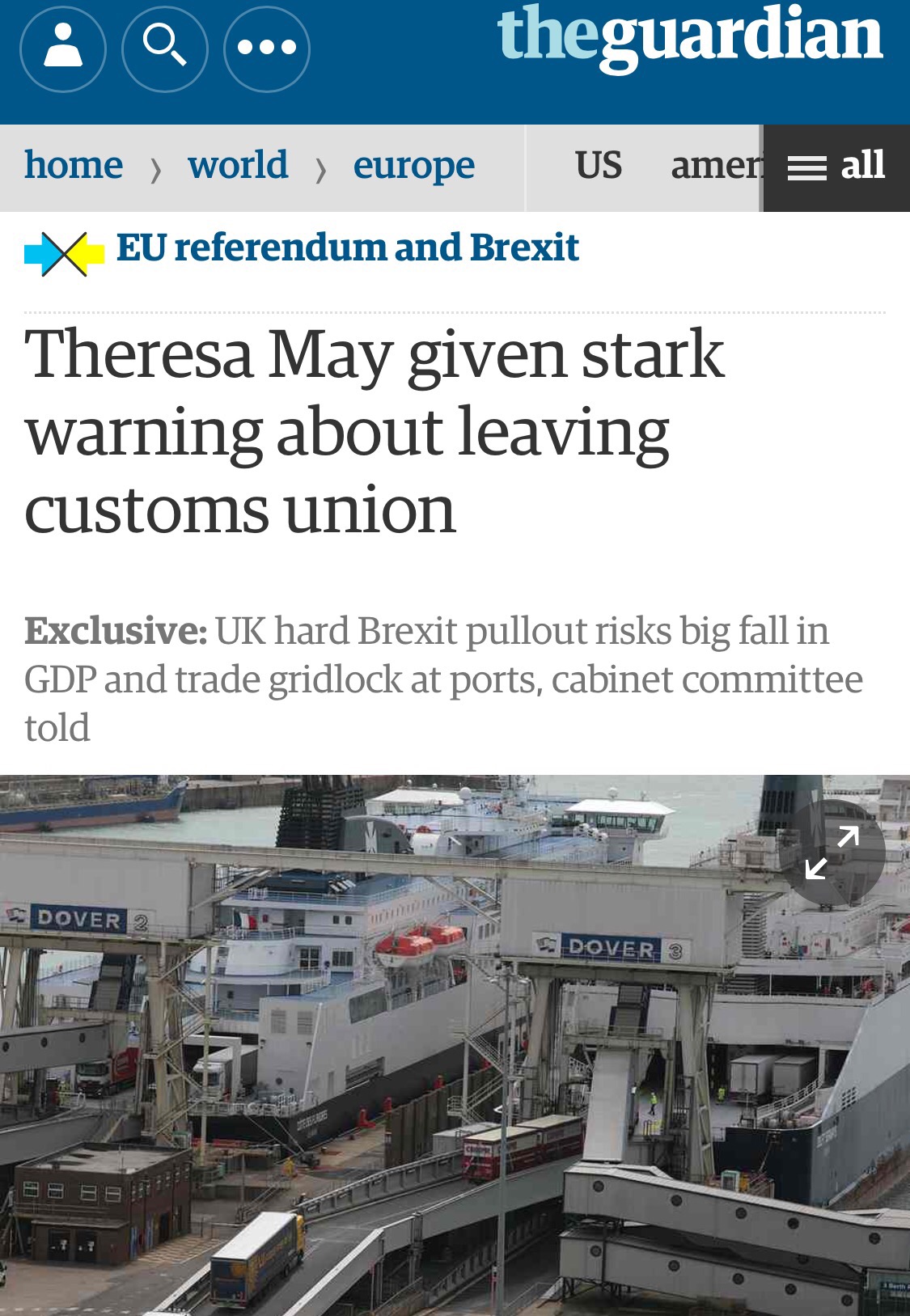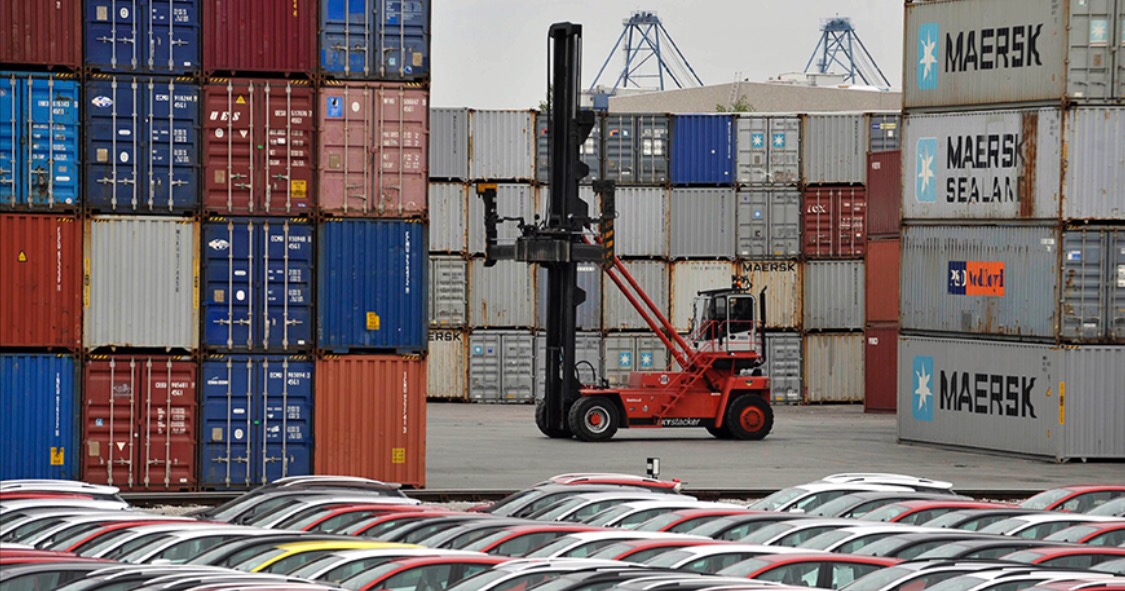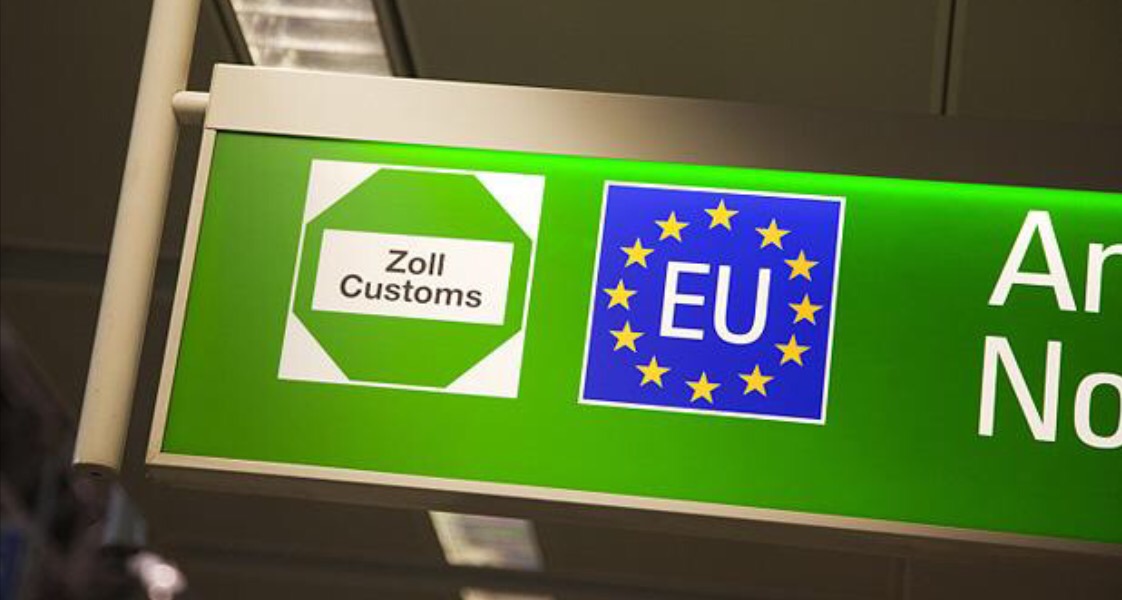There are a lot of great TV shows right now. I really like shows, like e.g. Game of Thrones, The Night Of, Vikings, Black Sails, Narcos, Downtown Abbey and my nee favourite show, Peaky Blinders.
Peaky Blinders is a BBC television crime drama with Cilian Murphy as the Birmingham gang leader Tommy Shelby. It is based upon the exploits of the Peaky Blinders gang, operating in Birmingham, England during the aftermath of the First World War. The series was created by Steven Knight.
Paul Anderson is fantastic as the older brother Arthur Shelby and Tom Hardy is doing an overplaying masterpiece role worthy of John Malkowitz, as gang rival leader Alfie Solomons.
Don’t miss this show with three seasons so far.
Exclusive: UK hard Brexit pullout risks big fall in GDP and trade gridlock at ports, cabinet committee told.

Cabinet ministers have been given detailed warnings that the UK pulling out of the EU customs union could lead to a 4.5% fall in GDP by 2030 and the clogging up of trade through Britain’s ports.

The predictions were contained in a paper circulated at a meeting of Theresa May’s special Brexit cabinet committee, which concluded that ministers were not yet prepared to decide whether the UK should withdraw from the EU’s free trade bloc.
To stand still in trade terms after a withdrawal from the bloc, the UK would need to grow trade with its 10 largest partners outside the EU by 37% by 2030.
The studies, by the Treasury, the thinktank NIESR and the Centre for Economic Performance and London School of Economics, predicted the effect on the British economy if the UK was to opt for a Norway-style model. That would involve remaining inside the single market but outside the customs union, within which countries set common external tariffs and so do not require customs checks.

The paper on the customs union also warned that to stand still in trade terms after a withdrawal from the bloc, the UK would need to grow trade with its 10 largest partners outside the EU by 37% by 2030.
Ministers were also warned that some ports, including Dover and Holyhead, which handle a lot of road freight, could be seriously clogged up if there were customs checks on vehicles transporting goods.

Jonathan Roberts, head of communications at the UK Chamber of Shipping, told the Guardian that removal of customs controls in 1992 “stimulated huge growth” of trade between Britain and its EU neighbours.
He added: “£120bn of goods is transported on ferries to and from Dover alone every year, and the re-imposition of significant customs checks would cause profound traffic problems near ports and could ultimately cause a reduction in trade volumes.”

You can read the entire article here: The Guardian: Theresa May given stark warning about leaving customs union
Source: The Guardian










You must be logged in to post a comment.